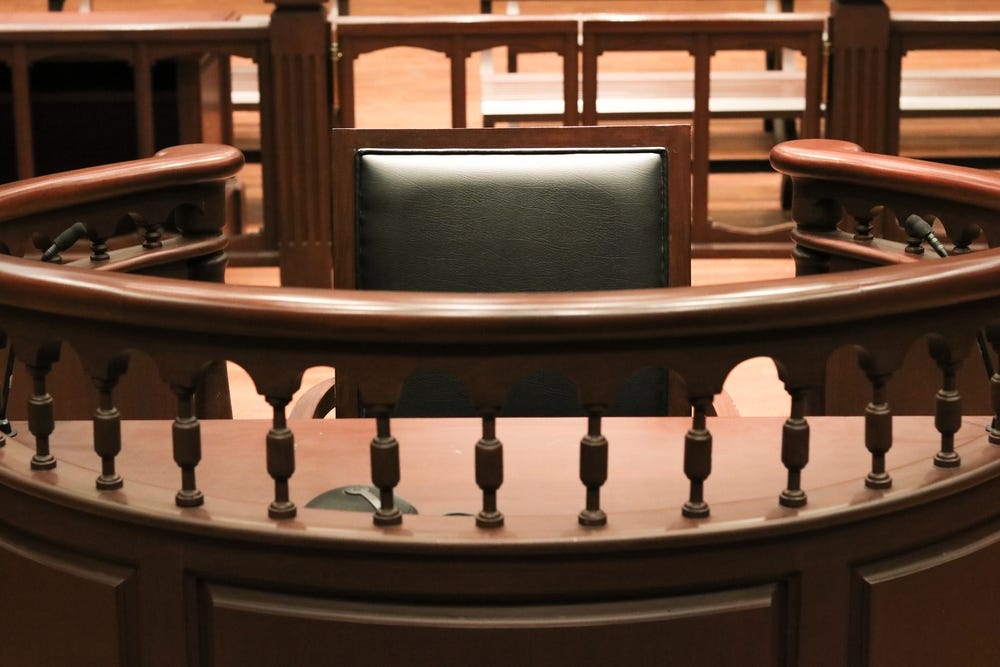Use of new ‘gold standard’ UK stats called into question.
Marcos calls time on POGOs in the Philippines.
Evolution faces analyst questions over point of supply issues.
New reports look into the stuttering progress of iCasino in the US.
Tell me lies, tell me sweet little lies.
Ball of confusion
Fools gold: A week ahead of the publication of its new Gambling Survey for Great Britain – GSGB – the UK Gambling Commission has risked ridicule after issuing new guidance that warns its new “gold standard” statistics should not be used to calculate the rate of gambling harm.
The Commission has previously drawn heavy criticism over the reliability of the new stats compared with the previously lauded Health Survey data.
Many have voiced fears the new methodology will show levels of problem gambling as much as 10 times higher than previous surveys.
No, nay, never: Seemingly acknowledging the new survey is flawed, the Commission said on Friday that the GSGB stats “should not be used” to:
Provide direct comparisons with results from prior gambling or health surveys.
As a measure of addiction to gambling.
To calculate an overall rate of gambling-related harm in Great Britain.
To gross up the prevalence of problem gambling or the consequences of gambling to the whole population (until further work is completed).
Pay no heed: Notably, despite this guidance, an article just last weekend in The Guardian said the new data was “expected to indicate that rates of problem gambling may be higher than previously thought.” This despite the UKGC guidance saying direct comparisons between the GSGB and previous surveys “should not be used to assess trends over time.”
Blind leading the blind: The response to the new guidance was immediate. Dan Waugh, partner at Regulus Partners, said the Commission had “effectively admitted that it has no idea whether its new survey is reliable.”
He noted the Commission has previously announced that the NHS Health Surveys would no longer be used to provide prevalence estimates.
With the new statistics deemed as largely unreliable, it means in “just a few days from now, there will be no official statistics on the prevalence of ‘problem gambling’ in Great Britain that can be reliably used to inform policy.”
This comes, Waugh added, “in the middle of a major overhaul of market legislation and regulation.”
Pile on: Melanie Ellis, partner at Northridge Law, was equally critical. “How on earth will we have any way of assessing whether the White Paper reforms have delivered ‘real change’ when we will have no reliable way of assessing whether rates of gambling-related harm have reduced since before their introduction?” she posted on LinkedIn.
“In light of this guidance, I would urge the Commission to reconsider whether it is wise to release apparently unreliable data as official statistics,” she added.
Waugh suggested the confused nature of the guidance “raises a number of questions of regulatory competence and judgment,” adding that if there is sufficient doubt about the reliability of the data such that further investigation is required, “why are the results not still badged as ‘experimental statistics’?”
He went on to question whether it is ethical for the market regulator to publish statistics on matters as serious as suicide, domestic violence and mental health breakdown in the knowledge they are probably incorrect.
Moreover, he questioned how evaluation of the Gambling Act Review is to be conducted if the baseline for official statistics has been corrupted.
GuardDog, powered by Underdog, is a pioneering investment fund dedicated to fostering innovation in responsible gaming.
GuardDog supports and accelerates early-stage startups focused on building new and creative solutions to address problem gaming and further responsible gaming.
Ready to be one of the underdogs of responsible gaming?
Visit to apply: https://underdogfantasy.com/guarddog
+More
Once again from the top: Europe’s top industry lobby group is again warning of black market threats and calling on lawmakers to do more to punish offshore operators. A new report and an open letter signed by the CEOs of members of the European Gaming and Betting Association, including bet365, Betsson, Entain, Evoke, Flutter and Kindred, expressed collective concern about the “worsening” situation on the continent.
“While we strongly support enforcement measures against black market websites, competitive, regulated online gambling markets are the only effective solution,” the letter read.
“We call on national policymakers to design regulatory frameworks that balance robust consumer protections with a competitive and innovative online gambling environment that is attractive to players.”
In the clear: The Good Law Project’s attempt to have GambleAware investigated by the Charity Commission has come to nothing, after the Commission said the accusation that the charity compromised its educational objectives due to its reliance on industry funding were groundless.
The Commission said in a press release: “We received the necessary assurance that the trustees have been handling matters as we would expect, including taking appropriate steps to ensure its independence from the gambling industry.”
The statement added that the trustees have “satisfied the Commission that they have the right processes in place to ensure they are furthering their purposes.”
“We issued the trustees with advice and have concluded our case.”
Annals of sports integrity
Threat levels: A number of MLB players have received threats related to gambling, according to league commissioner Rob Manfred. He expressed concern for players’ safety and said the MLB is considering potential courses of action.
Safety first: Sportradar, the ATP and Tennis Data Innovations have launched Safe Sport, an online service to address abuse targeted at professional tennis players. The service will integrate AI moderation, education and investigation to filter players’ social media channels for toxic and abusive comments, spam and bots across 29 languages.
Alerts on the rise: Reports of suspicious betting activity jumped 80% YoY to 90 alerts, according to the International Betting Integrity Association. However, the total number represented a 3% sequential decline. Esports accounted for over half of total alerts.
+More careers
GamCare has promoted Alexa Roseblade to chief of staff. Roseblade was most recently head of children and young people at the company and has prior experience working for Cancer Research UK and the National Deaf Children’s Society.
Head of People – Remote in USA
Head of Compliance – Malta
Head of Monetization – Cyprus
POGO ban
Calling a halt: Philippines President Ferdinand Marcos Jr has announced the ending of the country’s Philippine Offshore Gaming Operators licensing regime, with the issuing of all new licenses brought to an immediate halt and all operators told to wind down operations by the end of the year.
The dramatic move came in Marcos’ State of the Nation address in Manila on Monday.
“Effective today, all POGOs are banned,” he told the country’s legislators. “I hereby instruct [gaming regulator] PAGCOR to wind down and cease the operations of POGOs by the end of the year.”
Had it up to here: Marcos said the move to ban POGOs was made because of the instances of online gaming operators’ links to organized crime, particularly the Chinese-facing operators. Reuters reported that Marcos received loud applause and a standing ovation when he said the “grave abuse and disrespect to our system of laws must stop.”
“Disguising as legitimate entities, their operations have ventured into illicit areas furthest from gaming such as financial scamming, money laundering, prostitution, human trafficking, kidnapping, brutal torture, even murder," Marcos told the assembly.
Victory lap: Senator Risa Hontiveros, who is leading an investigation in the upper house into alleged links of POGOs to criminal syndicates, called Marcos’ move a “victory for the entire nation.” “POGOs have brought innumerable and unspeakable social ills into the country,” she said in a statement to Reuters.
PAGCOR chief Alejandro Tengco is yet to respond to the news of the ban.
It was noted by Asia Gaming Brief, however, that Tengco was in the audience for the speech and would likely have been forewarned about its content.
Duterte Harry: POGOs were first instituted under previous President Rodrigo Duterte as a way of formalizing the structure of online gambling entities that used the country as a base for their offshore operations.
Evolution’s PoS questions
Read across examination: During its Q2 earnings call last week, Evolution faced questioning over the nature of its exposure to gray markets, particularly in Asia, and the extent to which that might draw attention from regulators either in the US or the UK.
Asked specifically whether Evolution finds it “problematic” that it might have revenue-share agreements with operators taking money out of “sanctioned” countries, CEO Martin Carlesund said it was a question the company has answered “many times before.”
“We have a relation with the operator and the operator has a relation with the player,” he said.
“We only work with licensed operators and they have to be regulated [either] by a state or a government.”
CFO Jacob Kaplan added that countries “on the strict sanctions” list are blocked by Evolution’s systems.
Arm’s length: He said Evolution does not take “any money” nor have any control over where the player is. “The only connection we have is that they have an IP number,” he added. “The full KYC responsibility and where the player is placed and taking the money from the player resides with the operator. So that's how we look at it.”
Ask me no questions: The questioning came after Michigan sent out an attestation form asking questions about dotcom exposure among B2B providers. Analysts at Regulus noted that while the form only consisted of six questions, together they “cut to the heart of how online gambling has evolved over the last 30 years.”
Following Friday’s earnings, the team suggested the “big potential disruptor” for Evolution was regulatory rather than operational.
“Will a key point of consumption regulator take issue with Evolution’s very large point of supply footprint; Michigan’s questionnaire suggests the answer might soon be a qualified yes.”
💥 Evolution’s shares down nearly 13% since its Q2 earnings
Betsson’s harsh climate complaint
Swingers: Similarly challenged on its earnings call with analysts last week was the Betsson management team, who were questioned on signs of greater regulatory pressures in the Netherlands, where the company recently bought into the market, and its home market of Sweden.
CEO Pontus Lindwall claimed the “regulatory environment will always change in different directions.”
He added that he felt regulators were overstepping the mark on the prevention of harm.
“I think we will see things maybe swinging back in the future,” he said. “We have seen that too many forward-leaning regulatory initiatives kind of takes away the whole idea with regulating.”
A regulated breakdown: Despite revenue from regulated markets increasing by 75% over the course of the year, the percentage of revenues from point of consumption-taxed jurisdictions stood at only 55% of the total, albeit up from 36% this time last year.
The B2B business, which largely consists of revenues from Betsson’s outsourced relationship in Turkey, accounted for 26% of total revenues or €70.6m.
Armalytix increases customer conversion by 250-350% on average.
Gaming-specific AML and enhanced financial risk checks, combining OCR, Open Banking and AI.
Sustain your most loyal and valuable customer base and meet existing and future regulations by implementing simple, fast and effective checks you can use immediately in your existing processes.
Take advantage of the industry-leading compliance checks that 200+ firms across gaming, financial services, legal and accountancy use everyday.
iCasino struggles
Mind the gap: A vast gap exists between the number of states with mobile sports betting and iCasino. Mobile sports betting is legal in 30 states plus the District of Columbia, but legal online casinos are available in just seven states – eight if you include poker-only Nevada.
That gap is unlikely to close in the coming years. Conversations are expected to occur in at least a half-a-dozen locales in 2025, but current efforts have stalled and there is a lack of serious candidates waiting on the sidelines.
In its latest US iGaming Outlook, Vixio forecasted a pace of roughly one new iCasino state per year.
The Eilers & Krejcik Gaming team was as pessimistic, limiting its momentum ratings to “a select group of states that we view as plausible, near-term candidates for online casino expansion.”
Alternative tentacles: With new state launches several years away, firms may seek an alternative or placeholder product. And they may not have to look far afield. Sweepstakes and social casino sites are some of the biggest beneficiaries of the absence of legal online casino options.
During a presentation at EGR North America, Chris Grove, co-founding partner at Acies Investments, highlighted sweepstakes and social casino operators (with a TAM of $10bn) as strong M&A targets for omnichannel gaming companies.
However, there are some risks. Grove’s presentation noted the regulatory risks and “moderate” cross-sell opportunities.
Close but no cigar: As Vixio noted, the games offered at sweepstakes casinos are similar to those on offer at legal online casinos, “with many prominent online casino game suppliers also supplying games for a sweepstakes product.”
“The top sweepstake casino products will be familiar to real money and social casino players, with slot titles from the likes of Pragmatic Play, Relax Gaming, Playtech and NetEnt,” EKG noted in its The EKG Line newsletter.
“However, the product was still a tier below real money and social competition.”
The next DFS 2.0: Daily fantasy sports operators have been forced to dramatically scale back their offerings over the last year-plus, with a dozen states restricting pick’em style contests that regulators felt too closely resembled sports-betting parlays.
The contests were a victim of their own success, with competitors (licensed sportsbooks) pointing out the similarities between DFS 2.0 contests and their sports-betting offerings.
The possibility of a regulatory crackdown could dissuade some firms from going down the sweepstakes M&A road.
Vixio noted: “While the legal and policy arguments at play are very different for sweepstakes, it’s hard not to see the parallels to the burgeoning sweepstakes genre that is continuing to gain visibility.”
A single bump in the road: Sweepstakes have largely been left alone in the US. “The sweepstakes model is supported by prominent legal opinions, and VGW has been operating in North America since 2012 with no major legal pushback,” outside of class-action lawsuits filed by customers, per The EKG Line.
One exception: The Michigan Gaming Control Board fired a volley at sweepstakes sites, sending cease-and-desist letters to PredictionStrike, Stake and VGW/Luckyland in 2023.
The crackdown makes sense in Michigan, one of the seven iCasino states, but elsewhere there is little regulatory interest, at least at present.
Calendar
Sep 24: Player Protection, SBC Summit, Lisbon
An +More Media publication.
For sponsorship inquiries email scott@andmore.media.












